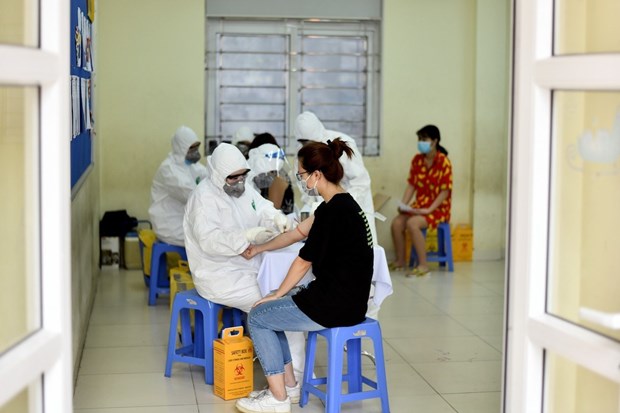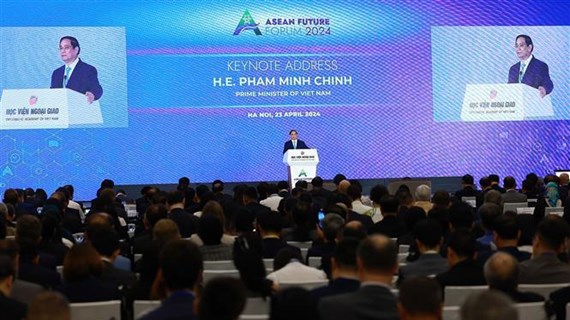Asia Times highlights public trust in Party’s leadership in Vietnam
 Health workers wearing protective suits collect blood samples at a makeshift rapid testing center (Photo: AFP)
Health workers wearing protective suits collect blood samples at a makeshift rapid testing center (Photo: AFP)
Beijing (VNA) – That Vietnam has been one of the best countries in the world at handling the COVID-19 pandemic is not an exaggeration, wrote a recent article published by Asia Times, an English language news media publishing group.
“In late July when the second wave of the disease hit Vietnam, many held their breath waiting to see how the country would handle the return of the virus. Within three months, Vietnam has again successfully flattened the curve of COVID-19 infections,” the article noted.
While many countries are still struggling to control the rise of cases, Vietnam has been able to bounce back from the crisis, it continued.
Vietnam’s success story has been attributed to effective closures and lockdowns, high levels of masking, prompt contact tracing and clear risk communication to the public. These measures have been made possible because of high public trust in the Communist Party of Vietnam (CPV).
“The public still trusts the CPV to take care of its citizens and to lead the country out of crises when they occur,” it affirmed.
Asian Barometer survey data collected prior to the COVID-19 outbreak suggest that Vietnamese citizens, on average, trust a wide range of formal institutions such as the Party, the Government, the military, the Party General Secretary and State President, the National Assembly and the police.
High public trust in the regime has presented a favourable environment for the CPV to handle COVID-19. Social compliance, especially when it comes to coping with economic losses, social distancing, masking and sheltering, has been highly maintained in the fight against the virus.
One answer for the high public trust might be the vivid memories about how the CPV led the country out of poverty, and the perception that the party has made enormous attempts to resolve the country’s problems.
The author stated that it is undeniable that the CPV has earned public trust from consistently high economic growth over the last decades.
However, what matters to the public is not only impressive numbers, but also the fact that Vietnam has emerged from being one of the poorest countries in the world to becoming an attractive investment destination in the global economy.
Lifting the country out of poverty proved the CPV’s capacity to lead its citizens out of crises, especially among the generations that lived through the transition process.
The CPV’s willingness to correct past mistakes may have built greater public trust, the article said.
Furthermore, the Party also did well in two other crises, namely the Asian financial crisis in 1997 and the severe acute respiratory syndrome (SARS) outbreak, which further increased public trust in its capacity to lead in times of difficulty.
The author went on to note that the public may perceive that the CPV does care about the well-being of its citizens. This point is illustrated by the fact that the party has attempted to solve problems that it publicly acknowledges.
Many domestic issues are open for public discussion and state media report issues related to corruption, the environment, education, economics and foreign affairs. These issues are even open for televised public legislative debates.
In addition to allowing public debate on certain issues, some may perceive that the CPV is attempting to resolve these problems, such as corruption, according to the article.
Since 2016, the CPV has implemented a large-scale anti-corruption campaign.
Moreover, it is evident that the party has made considerable efforts to improve governance and policy coordination between the central and local governments, which has led to steady improvements in many areas such as health care and tackling corruption.
The author concluded that high public trust in the CPV prior to COVID-19 afforded it an opportunity to tackle the pandemic effectively./.













